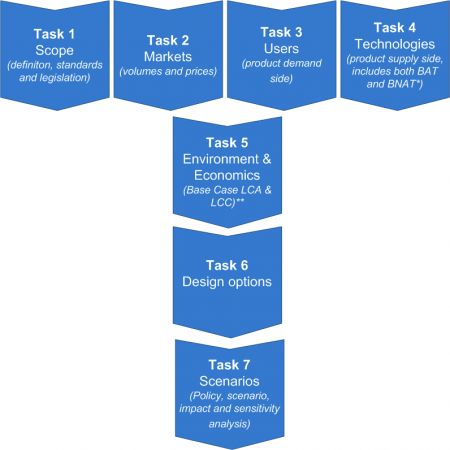This study was carried out by PwC, Fraunhofer ISI and the National Technical University of Athens:
PwC is acknowledged as one of the world’s leading advisers on energy, sustainability, infrastructure development and restructuring and project finance across all industry sectors, covering the full range of policy, regulatory, transactions execution and privatization and integration services. PwC works with main players all over the world, supporting them in facing industry’s challenges and opportunities, such as the growth in renewable and clean energies, M&A processes in regulated business, improvement of operational efficiency and issues related to business growth. With more than 180,000 specialists and offices in 158 countries, PwC uses an integrated multidisciplinary approach, combining broad professional capabilities at an international level with a deep knowledge of local markets and specific experience in different industries. In the energy sector, PwC relies on a network of over 4,000 staff dedicated to the energy industry and 12 centres of excellence covering the major regions worldwide, providing industry-specific solutions in the following fields:
- Assurance: audit and accounting services
- Advisory: consulting services aimed at strategic development to help companies increase stakeholder value and maximize corporate performance; support to M&A
- Tax & Legal: tax and legal services.
The Fraunhofer Institute for Systems and Innovation Research ISI analyzes the origins and impacts of innovations. Research concerns the short- and long-term developments of innovation processes and the impacts of new technologies and services on society. On this basis, clients from industry, politics and science are provided with recommendations for action and perspectives for key decisions. Fraunhofer ISI’s expertise is founded on scientific competence as well as an interdisciplinary and systemic research approach.
ICCS-NTUA participated in this project through its Decision Support Systems Laboratory EPU-NTUA in co-operation with experts from the Laboratory of Steam Boilers and Thermal Plants of NTUA (LSBTP-NTUA). EPU-NTUA is a multidisciplinary scientific unit which carries out research and development projects and provides high level consulting services on a wide range of complex societal and technical problems. EPU-NTUA operates within the School of Electrical & Computer Engineering of the National Technical University of Athens, the oldest, most prestigious and most competitive academic institute in Greece. LSBTP- NTUA has been working for the last 30 years on: The measurement and standardisation of warm water and steam boilers, the examination of phenomena which affect and determine the process of combustion in furnaces of conventional and non-conventional steam boilers, the energy exploitation of low rank coals and other fuels of poor quality, i.e. biomass and/or waste with biogenic origin, decentralized energy systems, power-to-gas.
